Japanese jingles, 80s pop music and ‘Brave’ Blossoms no more: 24 things we learned during the 2019 Rugby World Cup
Japan loves a jingle. Convenience stores have a strange affinity with 80s pop music. Crocs in the workplace. Sake isn’t what you think it is – the list goes on and on and on

Your support helps us to tell the story
From reproductive rights to climate change to Big Tech, The Independent is on the ground when the story is developing. Whether it's investigating the financials of Elon Musk's pro-Trump PAC or producing our latest documentary, 'The A Word', which shines a light on the American women fighting for reproductive rights, we know how important it is to parse out the facts from the messaging.
At such a critical moment in US history, we need reporters on the ground. Your donation allows us to keep sending journalists to speak to both sides of the story.
The Independent is trusted by Americans across the entire political spectrum. And unlike many other quality news outlets, we choose not to lock Americans out of our reporting and analysis with paywalls. We believe quality journalism should be available to everyone, paid for by those who can afford it.
Your support makes all the difference.The Rugby World Cup reached its climax on Saturday night, with South Africa crowned as champions after beating Eddie Jones’ England 32-12 in Yokohama.
Siya Kolisi, South Africa’s first black rugby captain, led from the front as the Springboks landed a third world title following victories in 1995 and 2007.
It marked the conclusion of seven long weeks after proceedings kicked off on September 20 with Japan’s opening victory over Russia.
The World Cup was making its first debut in Asia, with hosts Japan delivering a sporting spectacle that will long in the memory.
With the competition now at an end, reporters Jack de Menezes and Samuel Lovett look back on what they learned during their time in the country:
Japan loves a jingle
On the metro. On the toilet. When you’re taking money out of the cash machine. When you’re ordering food. When you’re laying wide awake at 3am, the fourth consecutive night in a row, delirium creeping in, lights flashing outside, the same happy-clappy tinkle from the shop across the road filling your ears. Japan absolutely loves a jingle.
Sake isn’t what you think it is
‘Sake’ refers to alcohol in general, not the fermented rice drink we’ve come to associate it with. Nihonshu is it’s actual name. You can lock that one away for a rainy day.
On the topic of nihonshu…
Some people will keep their own ‘sake’ bottles (often the really big ones you might see) at their local izakaya (think of it as Japan’s equivalent of a British pub) They’ll distinguish it with a little totem (maybe a cat key-ring, a silk ribbon – something of that ilk) so whenever they head back for a drink and a bite, they’ll fill their classes from the same bottle until it’s empty at which point they may buy a new one.
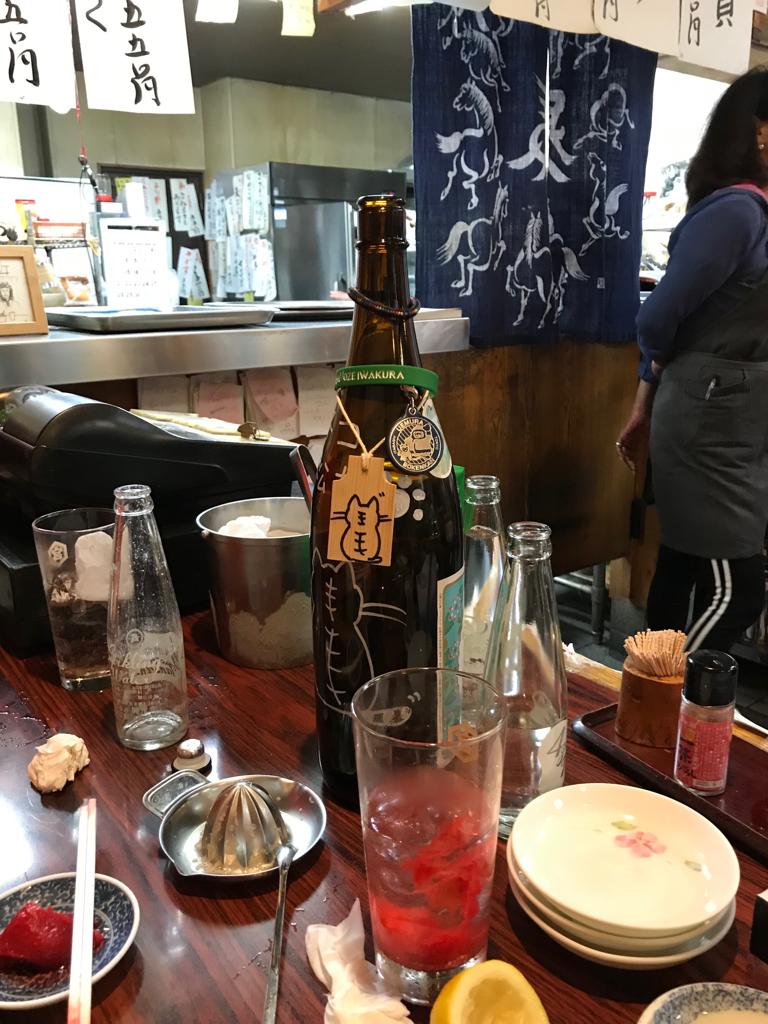
Time to accommodate rising Japan
Japan needs a seat at the top table of international rugby. How they can be frozen out of the biggest tournaments is unfathomable, with suggestions that they will not even be considered for Rugby Championship entry until the next TV deal ends in 2025. To keep Japan out of the big time for another six years would be a monumental waste of this tournament.
Convenience stores and their secret love affair with 80s pop music
It took me about four weeks and what must have been my umpteenth visit to 7/11 before stumbling upon Japan’s secret love affair with 80s pop music. A-ha, the Cure, Duran Duran, David Bowie, Wham! – we’re talking the lot. All the main convenience stores – 7/11, Family Mart, Lawsons – seemed to have their own ‘go-to’ song. My personal favourite was 7/11’s orchestral version of A’ha’s ’Take On Me’.
Crocs do not belong in the workplace
Businessmen in Tokyo wear Crocs in the office. Oh the horror of it. The sheer, blood-curling horror of it. What a sight. What a phenomenon. Completely unacceptable and unforgivable. I hope to never see anything like it again.
The food isn’t as healthy as you think…
Although there’s plenty of healthy food to enjoy, from the obvious stuff such as sushi, rice balls and sashimi (raw fish served with wasabi), I was taken aback at the sheer volume and variety of unhealthy options: Kushikatsu (deep fried skewered kebabs of meat, seafood or veg); Okonomiyaki (savoury pancake made from fried yam and meats); Takoyaki (batter balls typically filled with diced octopus); and Tempura. It was nigh impossible to escape it all. I tried really, really hard. Trust me.
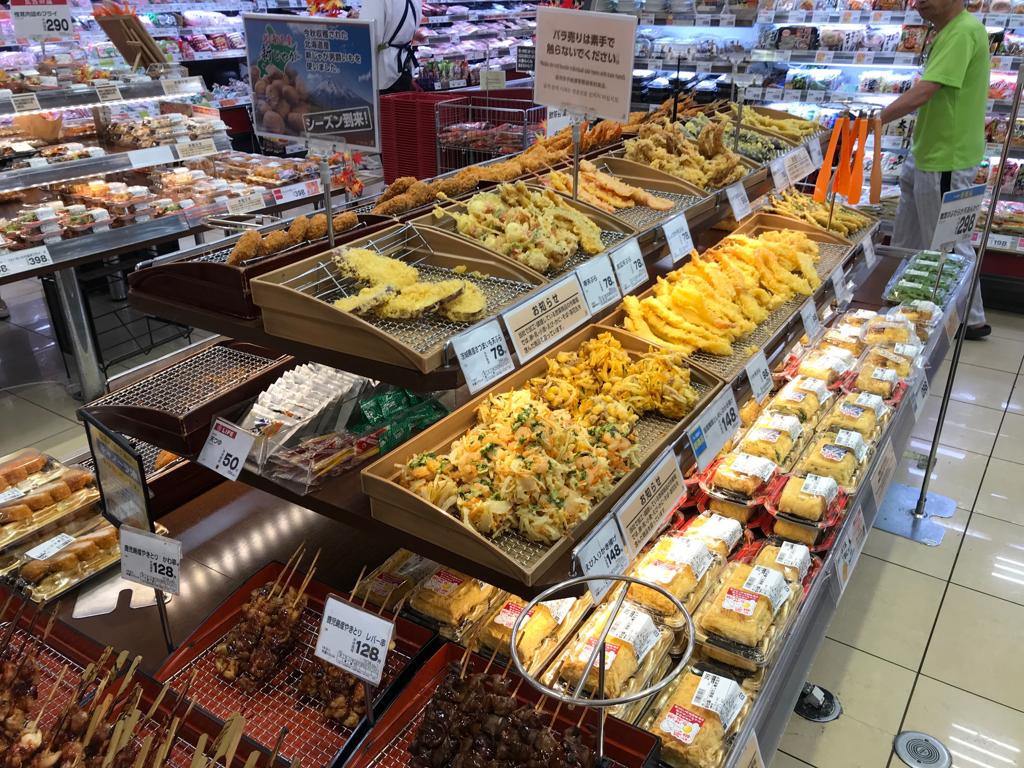
The All Blacks will be back
The All Blacks will be back, no matter what anyone says. The reason why New Zealand have been at the top of the game for so long is because they possess a grassroots culture that is unrivalled across the globe, and it is they will soon enough return to a period of sustained success. The defeat against England was a humbling one, but the danger for their opponents around the globe is that it could be the catalyst to spur them on to even greater things in the future.
Japanese politeness makes for enjoyable eviction
In all my life, I’ve never had quite such a pleasant and polite eviction from a train as the one I experienced on the way from Osaka to Tokyo. I’d mistakenly gotten on the wrong Shinkansen service, only to be kindly informed of this by the ticket conductor towards the end of the trip. Plenty of bowing and apologising subsequently followed from both him and myself before I got off at Yokohama. East Midlands Railway: take note.
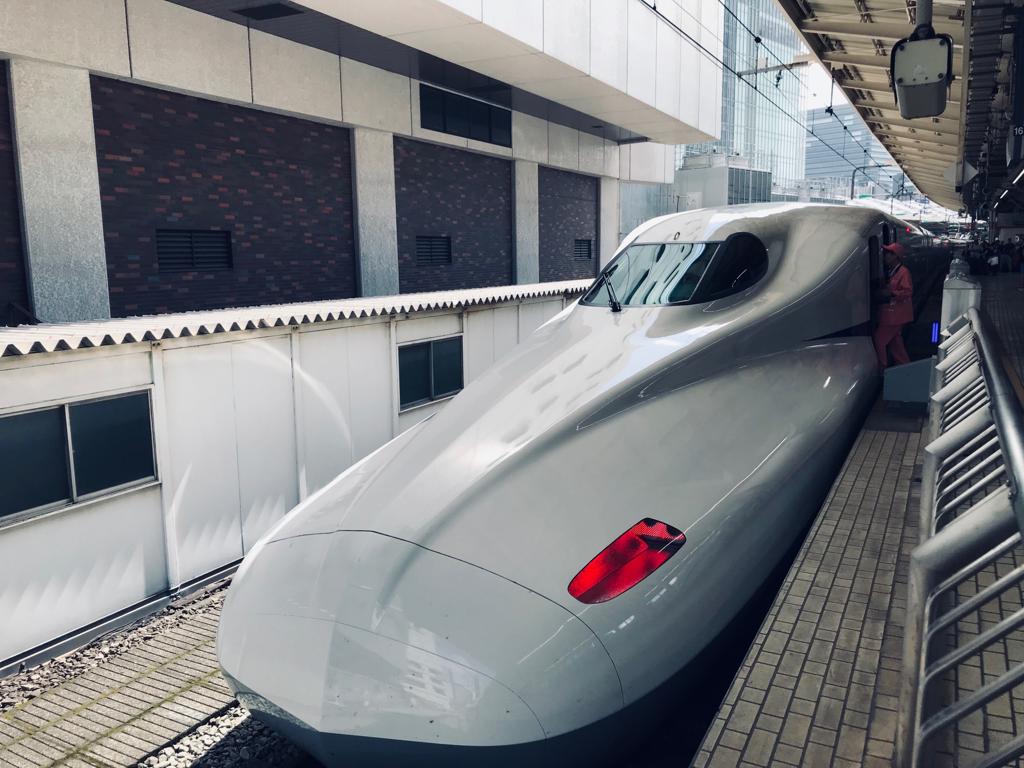
Toilet trepidations...
Where to start with the toilets. The plethora of buttons, the lights, the noises, the in-built bidet system. I had so many questions on my first counter with such a contraption: How do the sprays know where to aim? Where exactly does the water come from? Will it be warm? Will it be cold? Is it clean? How intense is ‘high pressure’? After seven weeks of deliberation, of weighing up the possible pros and cons, of asking myself how weird could it really be, I took the metaphorical plunge on my very last day. Never. Again.
Heartbreak for England
After the group stages, I admittedly had my reservations about Eddie Jones’ side. I’d seen nothing to suggest they were capable of beating the likes of New Zealand, let alone lifting the Webb Ellis Cup. But there’s no doubting England took it up a notch in the knockout stages to head into the final as favourites.
Sadly, it wasn’t to be. Had they delivered the same sort of performance they put in to beat the All Blacks against the Springboks, they would be world champions right now. But England came nowhere close to recapturing the ferocity or verve of that semi-final win. My sense is that the scale of the occasion simply got to them. From the early encounters, in conceding that opening penalty and losing Kyle Sinckler to concussion, you sensed something wasn’t right. Jones was similarly at pains after the final whistle to explain where it had all gone. Maybe we’ll never know.
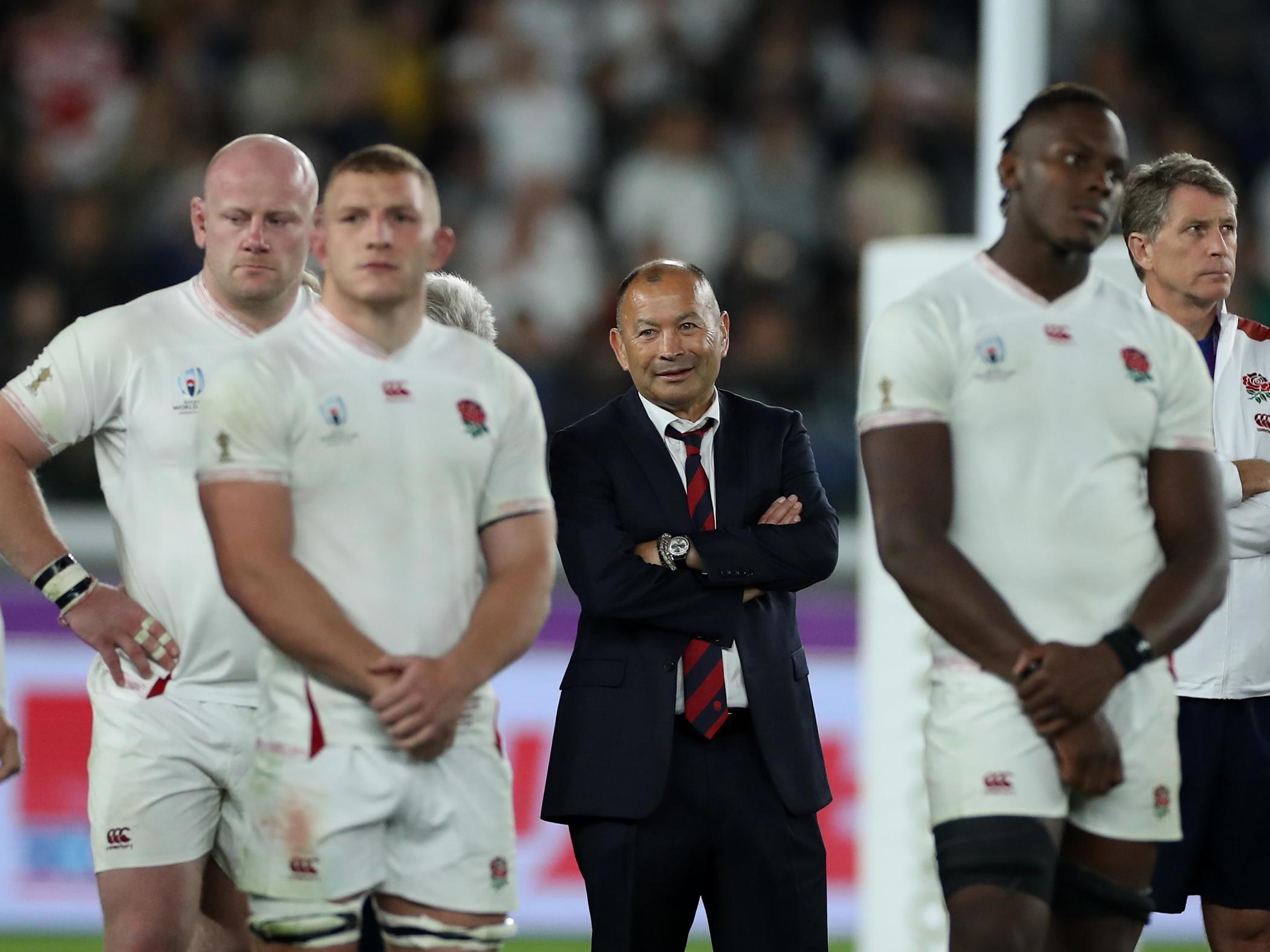
Cab chaos
Anyone can be a taxi driver. Literally. Spend any length of time in Japan and you’ll realise how spoilt we are in the UK to have taxi drivers who know their beat like the back of their hand. By the halfway point of this World Cup, I’d lost count of the number of times we’d pulled up to the wrong hotel or station. Of course there is plenty of detail lost in translation, but even the sight of a map befuddles the majority of drivers in Tokyo, which feels like something of a slight issue...
Three times the fun
There’s three different types of Japanese scripts for reading and writing: Kanji — which are Chinese ideographic symbols — as well as Hiragana and Katakana — two phonetic alphabets. What this basically means is that it’s three times as fun when trying to make heads and tails of what’s being written.
And to complicate matters…
Japanese text can be written either horizontally, or
v
e
r
t
i
c
a
l
l
y
In general, the two writing orientations serve different purposes. Vertical text will be used for novels, anything ‘traditional’ or definitively ‘Japanese’. Horizontal is more contemporary, scientific/business-based, foreign-related.
“LEEEITCHH”
Michael Leitch is a God here. He may have been born and raised in Christchurch, but Japan has adopted the national team captain as one of their own and the sound of “LEEEITCHH” echoing around the Tokyo Stadium was a joy to behold. Those who claim that playing international rugby as a foreign-born players means less than those who grew up there will learn a few wise lessons from how Japan has taken to ‘Leitchy’.
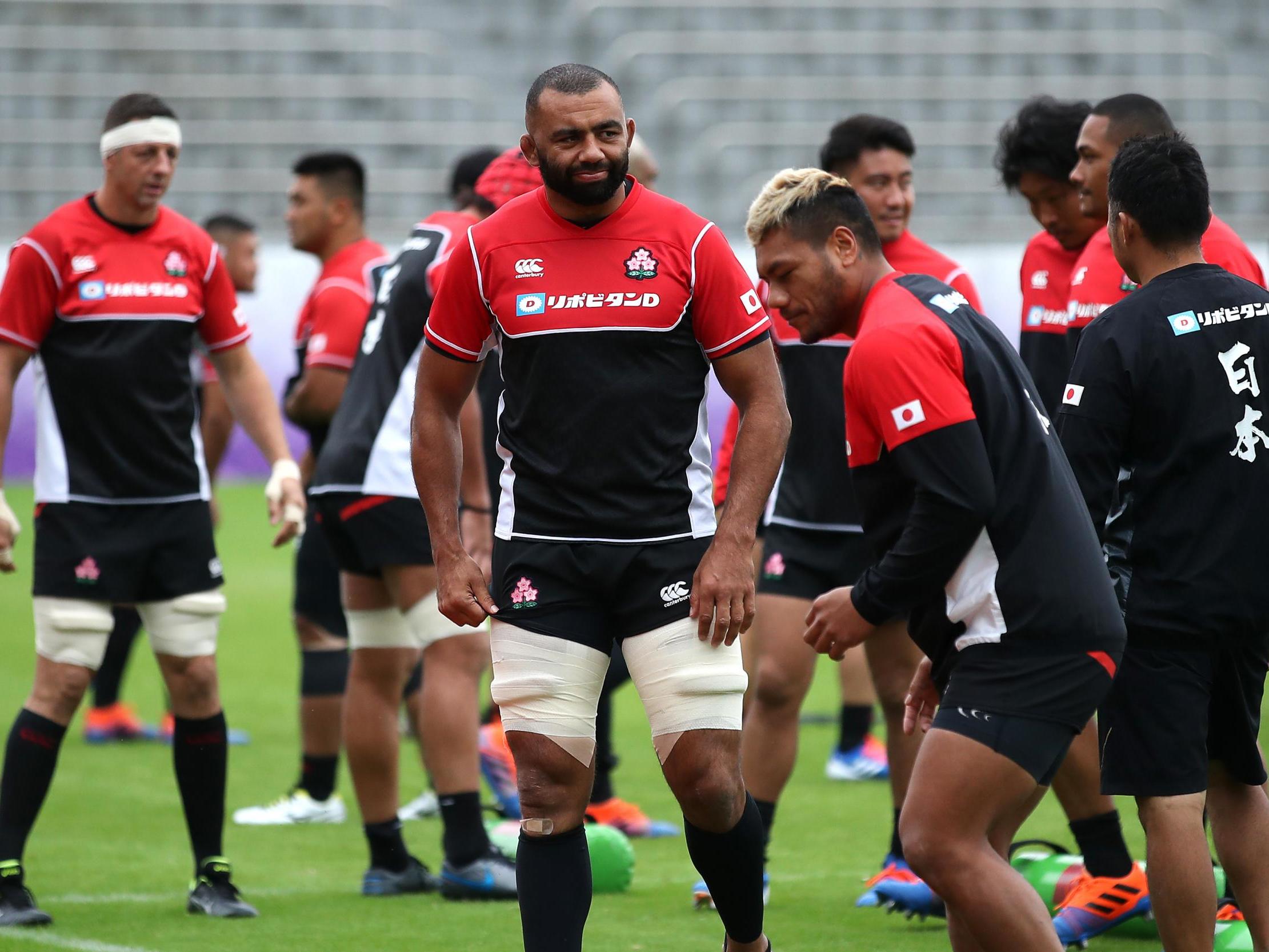
Japanese transport leads the way
The commitment to a transport system that runs to the minute is incredible. In spending two months in Japan, not a single train arrived late or departed early. On one ANA flight from Sapporo to Kobe, the flight attendant apologised for departing five minutes later than planned. It arrived to the gate two minutes early. Britain could learn a lot from how the Japanese transport infrastructure runs.
Tokyo Tower a romantic symbol of rejuvenation
Built in 1958, the Tokyo Tower stirs a sense of romantic pride in the city. Although the Skytree is far taller, and offers much better views over Tokyo, it doesn’t have quite the same appeal. Indeed, Tokyo Tower is much more than a communications broadcaster. It represents the city’s rejuvenation and rebirth in the post-war years as the country sought to carve out a new and innovative future for itself. At 332.9 metres (1,092 ft), it is the second-tallest structure in Japan behind the Skytree (which is the tallest tower in the world).
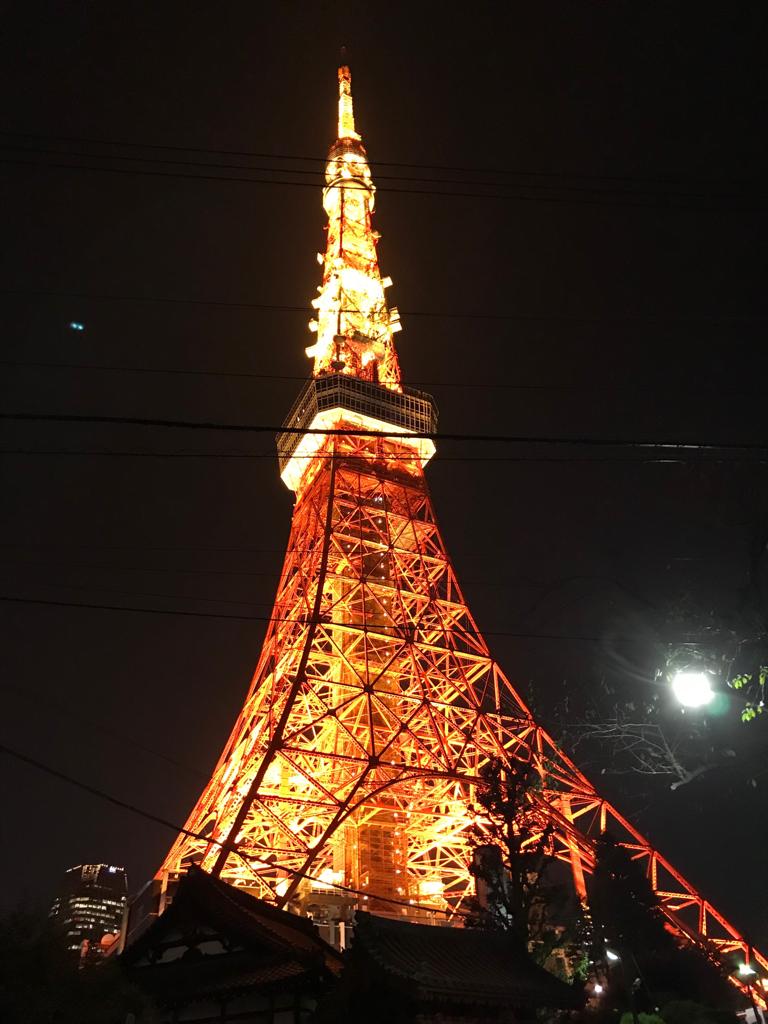
England will be returning to Japan sooner than you think
If you are an English rugby fan, book your 2020 tour tickets now. This has been an incredible and educational tour of a country that has so many untapped riches, and the best thing you can do now is organise a trip to Japan that takes in one or two of the Tests between the Blossoms and the Red Rose next July, but that also allows plenty of time to leave the hustle and bustle of the major cities and see the Japanese countryside. You won’t be disappointed.
Hype for Tokyo 2020 is bubbling away
There’s no doubting the impact the Rugby World Cup has had here, with the Japanese national side capturing the public imagination through their storming campaign. But it was still hard to get away from the hype and anticipation that is bubbling away for Tokyo 2020.
The logo for the Games was plastered all over the Japanese capital. On billboards, the side of cabs, bars of chocolate, even milk cartons. Adverts for the Olympics were frequently shown on the metro too, while discussions around the logistics of holding certain events in next summer’s heat, such as the marathon, frequently made the news. The World Cup may have ultimately dominated the headlines, but it was fairly obvious that Tokyo 2020 will be the shining jewel in Japan’s sporting crown.
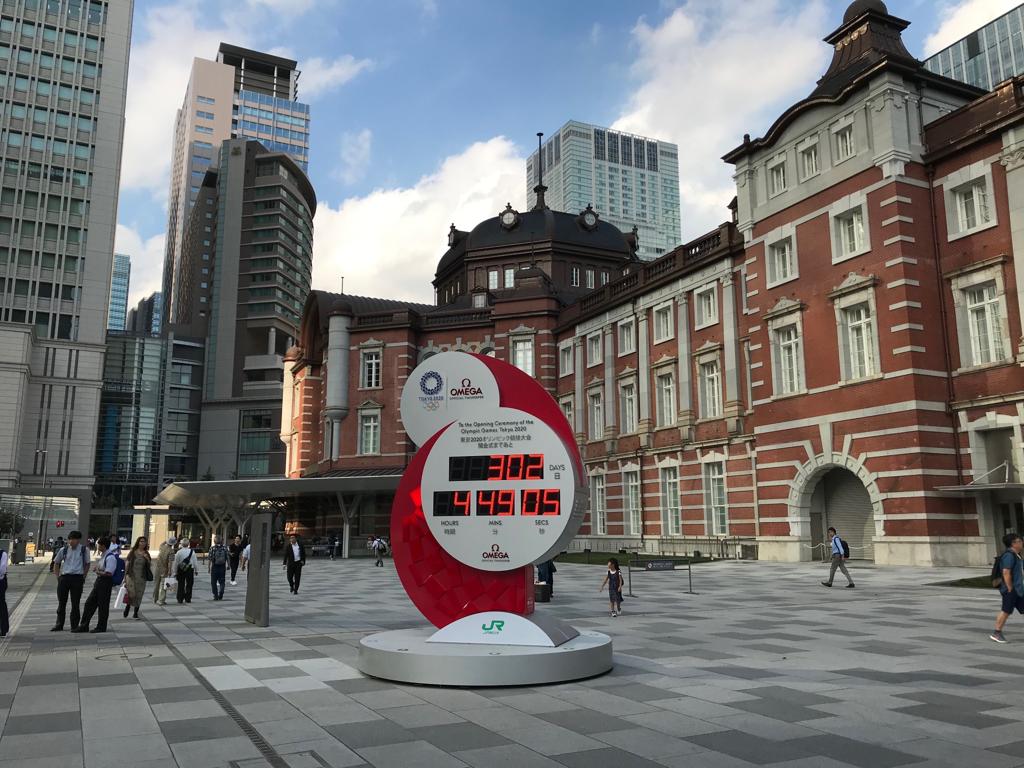
Japan’s cities don’t really do parks
Of the cities I visited, I was struck by the complete lack of big, open green spaces. There’s an abundance of prim and pristine gardens, but in terms of parks similar to the likes of Regents Park, Clapham Common, Hyde Park, there were no equivalents. Where do people go to drink Magners and bask in the sun when it’s boiling hot?
Sumo’s dark side
Sumo wrestling is certainly not what I thought it was. First of all, there’s a surprisingly dark undertone to the sport in the form of clandestine violence, issues of concussion, ingrained sexism and match-fixing. On the flip side, it remains steeped in tradition and mystique, with many of the sights and sounds seen in today’s proceedings stretching back to the Imperial courts of the eighth century. For the fans, this is what makes it so special: it’s a living, breathing manifestation of Japanese tradition and its ancient past. You can read all about the complex culture surrounding sumo here.
Brave Blossoms no more
It’s time to ditch the ‘Brave’. From this day on, it would be wholly appropriate to refer to Japan simply as ‘The Blossoms’ given what they have achieved not just at this tournament, but over the last four years. To give them the tag of plucky underdogs now feels nothing short of disrespectful.

Hansen’s honesty...
Steve Hansen has an odd way with words. The man who described the drawn British and Irish Lions series as “like kissing your sister” – whatever that means – decided to use his final post-match press conference as New Zealand coach to detail his deteriorating sex life. “Kieran Read’s only 33, I’m 60, and he’ll learn that you don’t get it much at that age. I certainly don’t get it as much as I want, I can’t actually remember the last time I got it.” Too much information, Steve. In a strange way, though, we’ll miss him.
Rugby union needs a global league
The rugby establishment has been well and truly shaken up. The global expansion may involve a lot of hot air from World Rugby, but they deserve genuine credit for building the sport up where there are more than two contenders for the World Cup. Going into this tournament, there were seven, maybe even eight, genuine contenders to win the Webb Ellis Cup, and that was before Japan announced their arrival on the big stage. As each day goes by, the increased interest around the globe makes it seem inevitable that we’ll end up soon enough with a global league of some kind.
Join our commenting forum
Join thought-provoking conversations, follow other Independent readers and see their replies
Comments